In the Northern Virginia area, we come across many successful professionals who have significant philanthropic desires. As financial professionals, it is important that we understand different charitable gifting options to explore with the client as part of their financial or estate plans. I recently had a client who inquired about establishing a private foundation, which is one of the more complicated charitable gifting strategies.
A little background: My client just retired from a successful career in the corporate world and has the means and the time to start giving back to her community. In addition, she wants a way to involve family in charitable causes. She also has several friends, like her, who are financially secure and searching for a meaningful way to support various causes.
While private foundations are charitable organizations that may, or may not, qualify as public charities by government standards, they have a philanthropic purpose and provide donors with some tax deductions. Private foundations may be funded by individuals, families or corporations and are governed by a board or trustees. Most foundations are set up to exist in perpetuity, or at least several generations. Foundation members may also benefit from positive recognition and the good will foundations can generate.
Some factors to consider:
- Foundations require substantial funding, typically at least $1 million.
- Foundations require a separate entity, increasing legal, accounting and administrative costs.
- Foundations are responsible for investment management.
- Foundation boards/trustees must meet fiduciary standards.
- Foundations must distribute income annually, for charitable purposes.
- Foundations pay an excise tax on net investment income.
Violating certain private foundation rules may result in significant excise taxes. These rules pertain to self-dealing, failing to distribute income, excess business holdings, undue investment risk and taxable expenditures. These violations can result in taxes on the foundation, officers and directors.
Tax deductions for private foundation donations are treated less favorably than deductions for public charity donations. Income tax deduction limits for gifts to private foundations are anywhere from 10-30% lower than for public charities. Annual tax returns are required for private foundations, which are subject to public disclosure and list grant recipients, staff salaries and trustee names.
Finally, while many envision philanthropic causes strengthening family bonds, there is a risk that family foundations suffer from family discord and dysfunction. Further challenges may exist if future generations don’t share the vision and passion of founding members.
If this seems unwieldy for your client, you may want to consider donor advised funds (DAFs). DAFs are giving accounts with public charities, allowing donors to make charitable contributions and receive a tax deduction in the same year. Donors recommend grants from their DAF at a time and amount of their choosing. DAFs can support one or multiple charities. Funds grow tax-deferred in DAFs; qualified charities receive funds tax free. Clients establish DAFs at a sponsoring organization and can name their own DAF, which can be fun and meaningful. When clients submit grant requests for a charity, the sponsor conducts due diligence, insuring grants go to IRS approved charities. The sponsor also tracks receipts, making tax preparation easier.
Advantages DAFs may offer:
- Donors may pass DAFs directly to heirs or charities
- Larger tax deductions
- Relatively low contribution minimum
- No set up costs or administration requirements
- No application for tax-exempt treatment
- Privacy as grants can be anonymous
- DAF owners don’t have fiduciary responsibility
- No excise tax on earnings
- No required annual payout
- Donors may have more investment options than just what the public charity offers
While clients may give up some control and prestige that private foundations possibly offer, the simplicity of DAFs can offset some downsides.
In general, private foundations best suit donors with a clear long-term gifting vision and are comfortable with the associated fiduciary duties. If donors have the funding, time and don’t mind stricter regulations, a private foundation may be worth considering. For my client, she welcomed these duties, knowing that she and her family have a strong, unified desire and commitment to philanthropic goals. The best gifting strategies are formed by understanding donors’ unique circumstances along with charitable giving mechanisms. Should you wish to explore gifting options, don’t hesitate to give us a call.*
The Community Foundation for Northern Virginia welcomes conversations with professional advisors exploring gifting options for your clients who wish to make a difference across our region.

*This article features writing by Cheryl Langston and West Financial Services, and is not sponsored content. Cheryl Langston is a Relationship Manager and Vice President at West Financial Services in McLean, VA.
West Financial Services, Inc. (“WFS”) offers investment advisory services and is registered with the U.S. Securities and Exchange Commission (“SEC”). SEC registration does not constitute an endorsement of the firm by the SEC nor does it indicate that the firm has attained a particular level of skill or ability. You should carefully read and review all information provided by WFS, including Form ADV Part 1A, Part 2A brochure and all supplements, and Form CRS.
This information is intended to be educational in nature, and not as a recommendation of any particular strategy, approach, product or concept. These materials are not intended as any form of substitute for individualized investment advice.
Source: www.irs.gov


 Questions?
Questions? Questions?
Questions?




